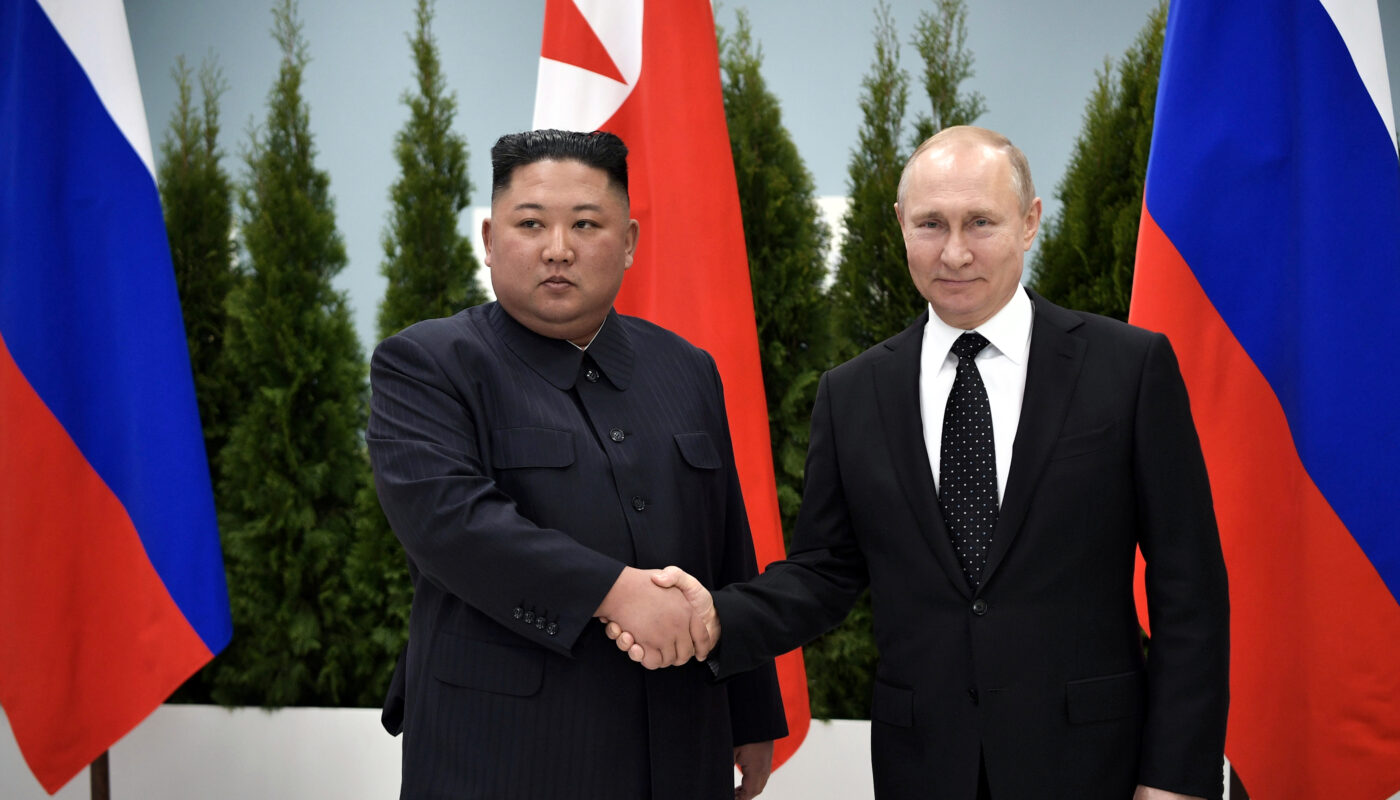Just past the year-and-a-half benchmark since the Russian invasion of Ukraine, the Russo-Ukrainian war continues to rage on. However, recent developments between the two countries and their allies may carry serious ramifications for the future of geopolitics.
Last week, Russian President Vladimir Putin hosted North Korean Leader Kim Jong Un, on his longest out of country trip since assuming power in 2011. During his six day stay, AP News reported that the pair visited a number of key military and technology sites. This signifies a strengthening in the two countries’ defense cooperation.
Despite Russia and North Korea’s historically dubious relationship, the two have often found common ground in the face of confrontations with the US and its allies.
Experts believe the two leaders may be discussing plans for North Korea to relocate its cache of Soviet-era artillery to the Russian offensive line in Ukraine. Despite the age and inaccurate tendencies of the weapons, growing desperation within the Russian army has exacerbated the need for additional weapons.

While officials within the Department of Defense are not confident these antiquated weapons will have a significant effect on the Russian offensive, the renewed friendship between North Korea and Russia could mark a reinforcement of the pair as allies going forward.
Since the beginning of the Russo-Ukrainian war in 2014, tensions between the neighboring countries and their allies have been increasingly volatile. Following the early 2022 large-scale-invasion of Ukraine by Russian military forces, the United States and China have rapidly developed a wariness of one another.
Conflict in the South China Sea over Taiwanese independence, as well as the February 2023 discovery of “spy balloons,” has deepened the decades-old animosity between the U.S. and China.
According to the Council on Foreign Affairs, the United States and NATO members have contributed more than $200 billion dollars in aid to Ukraine. Russia’s allies, including China, have contributed more than $70 billion to Russian forces.
On Sept. 21, 2023, President Biden issued a response to the arms deal at the 77th Session of the United Nations General Assembly. The President highlighted his condemnation of the Russian invasion and vowed to maintain aid to Ukrainian forces and their people.
Also on Sept. 21, Ukrainian President Volodymyr Zelenskyy arrived in Washington D.C. for his second visit since the invasion. He met with members of Congress to lobby for additional aid amidst the GOP’s spending battle. President Zelenskyy additionally addressed the press in the National Archives before meeting with President Biden in a joint press conference later that day.
No official deals have been made on either country’s side following the visits. Both Pyongyang and Moscow have refuted that any arms deals are currently under discussion. Congress is expected to propose a funding budget this week, however no current reports indicate any intentions to allocate funds for Ukraine.
In the coming months, any deals either country is able to secure will play a vital role in shaping the outcome of the Russo-Ukrainian war.


